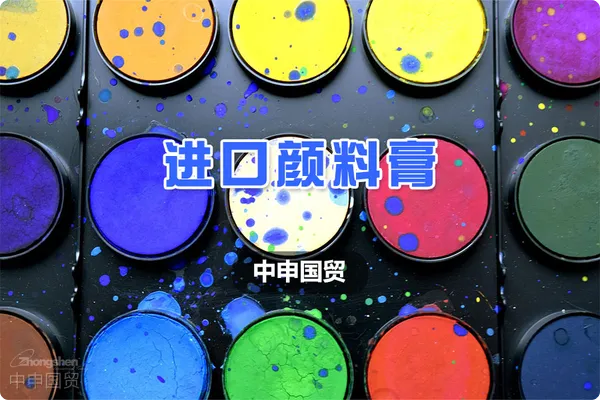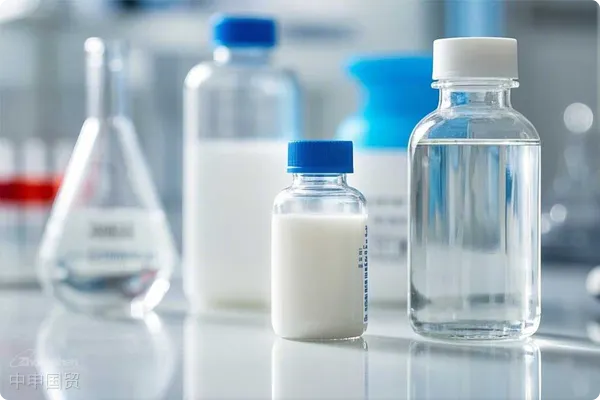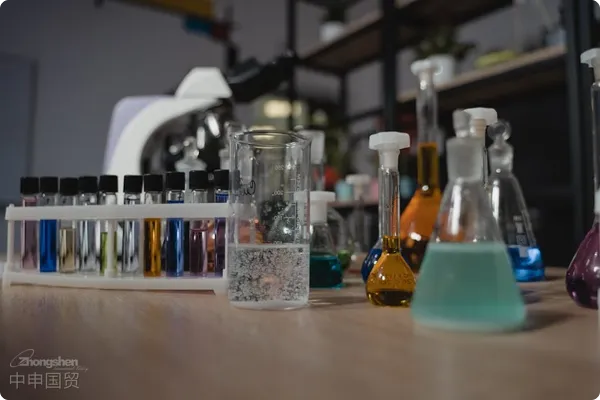- Shanghai Zhongshen International Trade Co., Ltd. - Two decades of trade agency expertise.
- Service Hotline: 139 1787 2118
Importing chemical pigment pastes involves multiple steps and certifications, the most critical of which is3Ccertification (China Compulsory Certification). 3C certification is a product conformity assessment system implemented by the Chinese government in accordance with laws and regulations to protect consumer safety and national security, and to enhance product quality management. Below is the detailed process and related costs for obtaining 3C certification for imported chemical pigment pastes.

Necessity and Scope of Application of 3C Certification
Necessity:
3C certification is a mandatory conformity assessment system in China for products related to personal safety and environmental protection. Products without 3C certification cannot be sold, imported, or used in the Chinese market.
Scope of Application:
Certain categories of chemical products may fall under mandatory 3C certification. The specific scope of application should be verified by consulting relevant regulations or professional agencies.
Process of 3C Certification
Determine Product Scope of Application:
First, determine whether the imported chemical pigment paste falls within the scope of 3C certification. This can be done by referring to the Compulsory Product Certification Catalog or consulting a certification agency.
Select a Certification Agency:
China has multiple authorized 3C certification agencies, such as the China Quality Certification Center (CQC) and the China Certification & Inspection Group (CCIC). Choose an appropriate certification agency for the process.
Submit the Application:
Prepare and submit the 3C certification application form, including company information, product details, technical parameters, etc. Submit product technical documents such as product manuals, technical handbooks, and Material Safety Data Sheets (MSDS).
Type Testing:
The certification body will conduct type testing on the samples, covering aspects such as safety and environmental protection. Sample testing usually needs to be performed at the certification body or its accredited laboratory.
Factory Audit:
The audit of the manufacturer includes production processes, quality control, etc., to ensure compliance with relevant requirements. If the manufacturer is overseas, an overseas audit may be required.
Certification Issuance:
After passing the type testing and factory audit, the certification body will issue the CCC certification. The certificate is generally valid for 5 years, with annual reviews required.
Costs
Application Fee:
The cost for CCC certification application, including document review and system entry fees, is typically around 2,000 RMB.
Type Testing Fee:
Fees vary significantly depending on the product complexity and test items, generally ranging from 5,000 to 30,000 RMB.
Factory Audit Fee:
The factory audit cost includes travel expenses and audit fees for the auditors. Overseas audits incur higher costs, typically ranging from 10,000 to 30,000 RMB.
Certificate Fee:
The management fee for the certification certificate requires an annual payment, usually around 2,000 RMB.
5. Other Expenses:
Other potential costs, such as translation fees and technical consulting fees, depend on specific circumstances.
Specific Operational Steps
Preparation Phase:
Confirm the product requires CCC certification. Prepare relevant technical documents and company qualification files. Contact the certification body for consultation and preliminary evaluation.
Application and Sample Submission:
Complete and submit the CCC certification application form. Prepare samples as required and send them to the designated laboratory for testing.
Factory Audit:
Host the factory audit by the certification body and cooperate with the auditors. Implement corrective actions based on audit results (if necessary).
Obtaining Certification:
After certification approval, obtain the CCC certificate. Conduct annual reviews on time to maintain certificate validity.
V. Precautions
Regulatory Updates:
Stay updated on CCC certification-related regulations in China to ensure product compliance with the latest requirements.
Selecting the Right Certification Body:
Different certification bodies may have slightly varying processes and fee structures. Choosing an experienced and service-oriented body provides better assurance.
Material Preparation:
Prepare complete and accurate application materials and technical documents to avoid unnecessary delays.
Communication and Coordination:
Maintain good communication with the certification body and provide timely feedback to resolve issues.
Through the aforementioned process, while the 3C certification for imported chemical pigment pastes is cumbersome, as long as the procedures are followed according to regulations and professional certification agencies are selected for cooperation, the certification can be fully completed smoothly and legally imported into the Chinese market.
Related Recommendations
? 2025. All Rights Reserved. Shanghai ICP No. 2023007705-2  PSB Record: Shanghai No.31011502009912
PSB Record: Shanghai No.31011502009912










